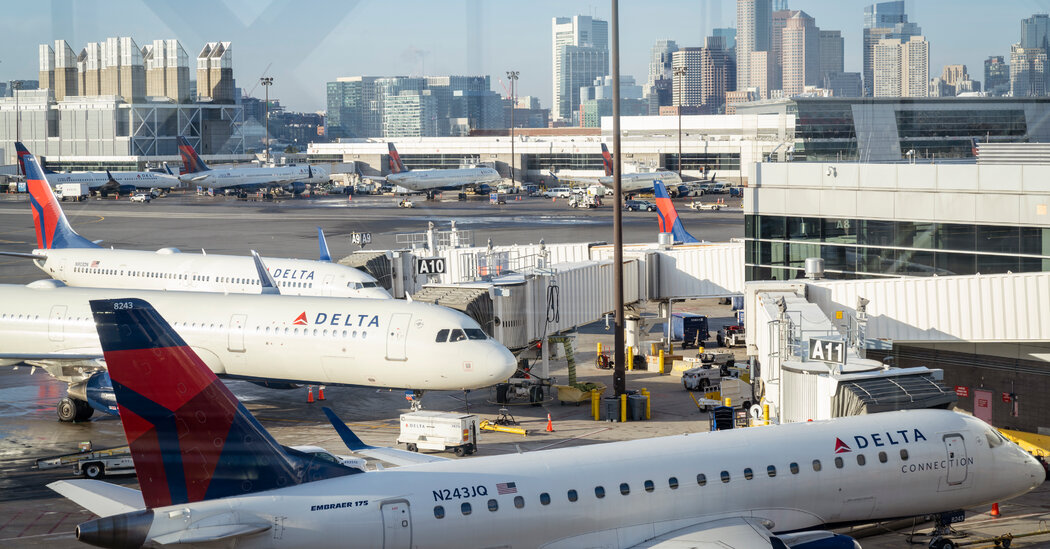WASHINGTON — Unable to fly through Russian airspace because of the war in Ukraine, U.S. airlines are stepping up a lobbying campaign on Capitol Hill and at the White House to address what they say is a growing problem: They are losing business to foreign competitors who can take passengers between the United States and Asia faster and more cheaply.
Effectively banned from the polar routes that save time and fuel between the United States and an array of destinations on the other side of the world, U.S. carriers say they are being forced into an aeronautical version of Twister to get passengers where they want to go without taking undue risks.
They have altered trans-Pacific flight plans to ensure they would have somewhere to land in an emergency, reduced passenger and cargo loads to hold down costs as they fly longer distances, and put on hold more than a dozen planned new routes to Mumbai, Tokyo, Seoul and other cities.
On its route from New Delhi to New York City, American Airlines has been forced to stop flights in Bangor, Maine — an hour and a half short of the mark — on 19 occasions, a person familiar with the recent history said. Those stops, which were typically caused by unfavorable winds or weather that depleted the jet fuel supply and ran out the flight crew’s duty hours, delayed passengers and forced a swap-out of 14 pilots and flight attendants.
Those flights were already operating with dozens of the seats deliberately left unfilled, the person added, because less weight on board was required to make the fuel last as long as possible.
Yet many foreign airlines are not banned from flying over Russia, U.S. airlines and their lobbyists say — and are winning more passengers on routes to and from the United States as a result. Continued access to the shorter and more fuel-efficient routes that Russian airspace provides is giving carriers like Air India, Emirates and China Eastern Airlines an unfair advantage, the industry lobbying group Airlines for America said in a recent presentation on Capitol Hill.
Airlines for America estimated the lost annual market share of U.S. carriers at a collective $2 billion per year.
“Foreign airlines using Russian airspace on flights to and from the U.S. are gaining a significant competitive advantage over U.S. carriers in major markets, including China and India,” the presentation, dated February, said. “This situation is directly to the benefit of foreign airlines and at the expense of the United…
Click Here to Read the Full Original Article at NYT > Travel…
